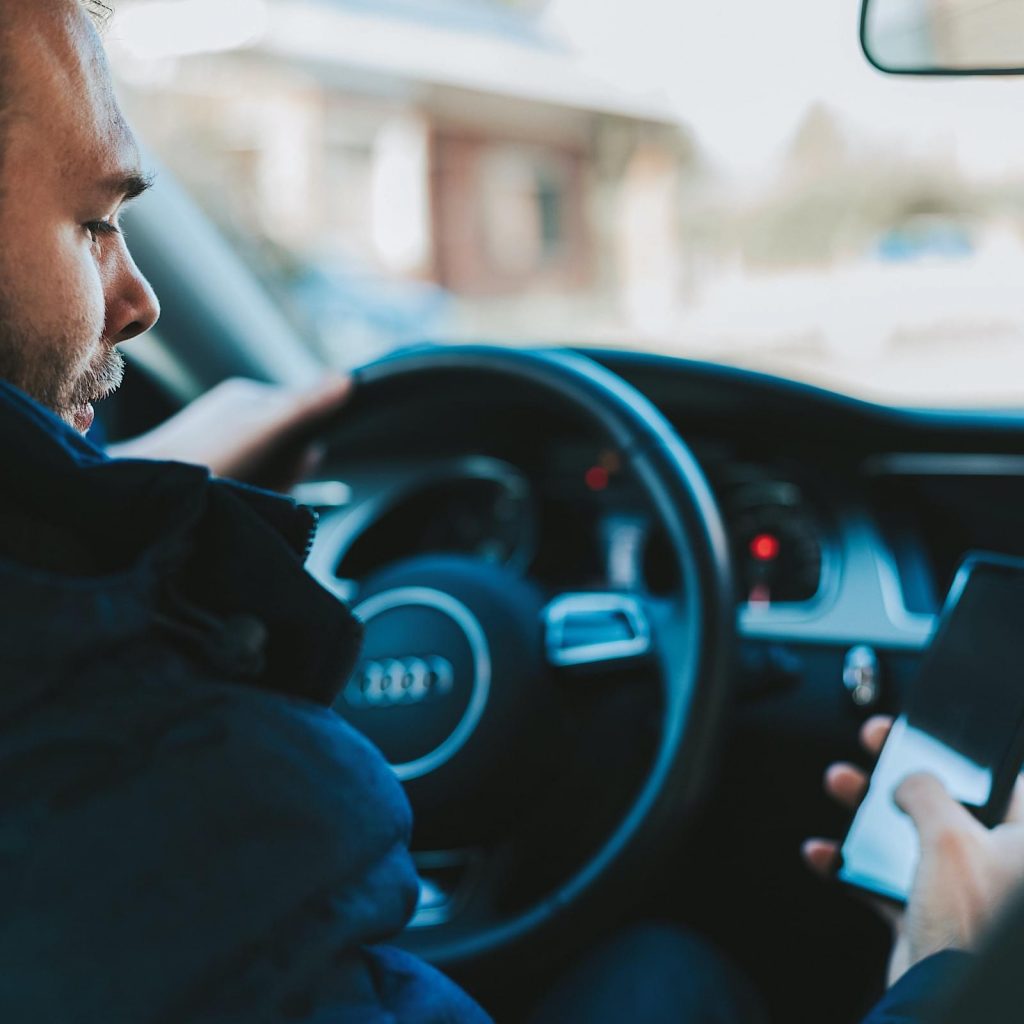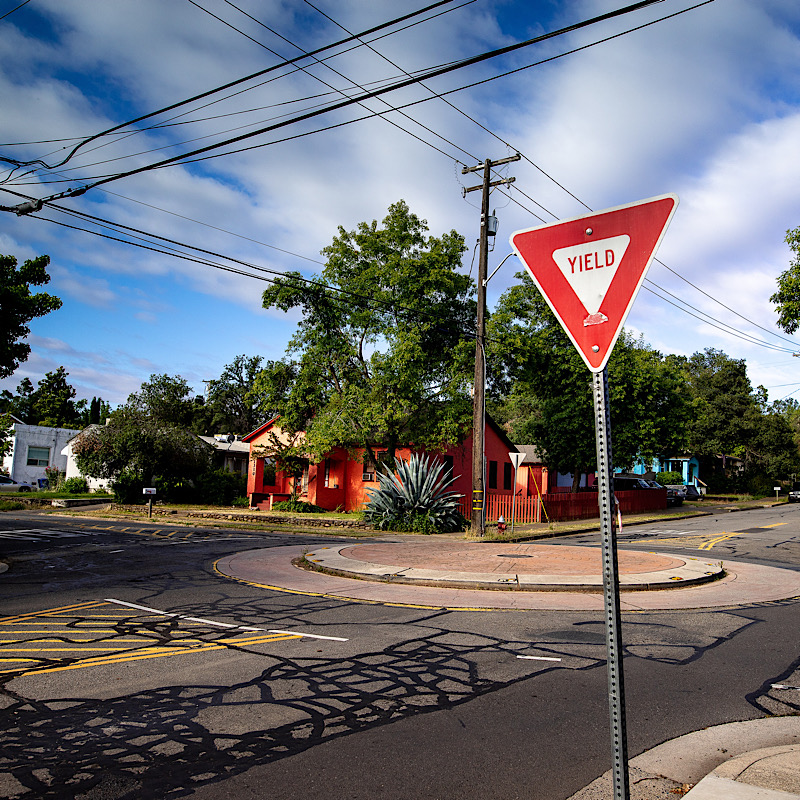Red Light Cameras: The Fine Line Between Safety and Privacy

Red light cameras are an increasingly common addition to roads and highways around the nation, intended for enforcement of traffic laws, ensuring the safety of all motorists on the roads. Though these cameras are widely used, some people are wary of their implementation due to the legal questions it may pose. Before attempting to cross any intersections, it is important to ensure you understand the legal aspects of red light camera implementation as well as potential privacy implications.
Red light cameras are placed at intersections to detect when a motorist has illegally entered the intersection after the traffic signal turned red. The cameras take pictures and videos of the cars running the red light, and in most states laws indicate that violators will be issued a citation in the mail. In most states, typically the registered owners of the vehicle will be issued a fine in the mail, regardless of who was driving the car when the infraction occurred. This is why it is important to ensure the car is always registered in the name of the driver or else the chances of getting unfairly fined are higher. Additionally, many states require a red light camera violation attorney to be present during hearings if the driver chooses to contest the citation.
When considering the legal aspect of red light cameras, it is important to be aware of the regulations governing their use. Each state operates differently when it comes to the installation of red light cameras, and may have different regulations and standards that need to be met. For instance, in some states it may be required for local communities to pass ordinances approving the installation of red light cameras before they can be put into use. Furthermore, courts may require warning signs to be placed at the intersection to notify drivers of the cameras’ presence.
Beyond the legal questions, one of the growing concerns surrounding the use of red light cameras centers around the potential privacy implications. Red light camera systems typically capture and record images and videos of license plates, raising the concern of whether this constituted a violation of privacy laws. While most states allow for the installation and use of cameras to enforce traffic laws, there remains the unwritten understanding of personal and privacy considerations.
Overall, understanding the legal aspects of red light cameras is important in helping to ensure that laws are being followed. Be sure to be aware of your local regulations around red light cameras, as well as the potential privacy concerns that they may pose. Should you ever receive a citation in the mail, it is important to seek representation from a red light camera violation attorney to help better understand the accusations and potential implications should they go to court.
At Hochman & Goldin, P.A., our experienced Miami traffic attorneys have extensive knowledge and experience in defending clients who have been issued traffic tickets, especially red light camera violation tickets. Contact us today to schedule a no-obligation consultation and learn how Hochman & Goldin, P.A. can help you fight your traffic ticket.
The 4 Most Important Safety Tips for Teens and New Drivers

So there’s a new driver in your life. There are many reasons to be happy about this, such as spending less time driving them around and more time to yourself, as well as watching your child grow more independent. However, there are a few additional pointers that you should impart to your new driver so that they are properly prepared for the many difficulties they may encounter on the road. Here are four of the most important driving tips for any new driver.
Practice Makes Perfect
The first and simplest piece of advice is to drive around with them. Before entering more difficult traffic scenarios, they’ll want to feel at ease with the fundamentals so they may learn from their mistakes in a low-stress setting. You should be sure to practice safe braking, turning, accelerating, avoiding distractions, and utilizing the blinkers.
Encourage Frequent Use of Blinkers
Describe how one of the most practical driving tools is the turn signal. They signal where you want to move your car and let other drivers know what your plans are. No matter where your new driver is or whether there are any other vehicles nearby, encourage utilizing their blinkers. Your new driver should naturally use the blinkers, which will keep them and other drivers on the road safe.
Explain Impact of Weather on Road Conditions
It is advisable to avoid driving altogether if the weather is very poor. However, it is possible for it to rain after a trip has already started. Make sure they understand that headlights must be on when it is raining, as well as that the following distance behind other vehicles should be increased and they should drive a little slower.
Comply with All Traffic Laws
Drivers must comprehend and abide by a number of rules, including those pertaining to right-of-way and road signs. Just a few of them include driving under the speed limit, giving the car in front of you enough room, paying attention to traffic signs, and wearing a seatbelt at all times. Your new driver will be able to drive safely and comfortably if they know and follow the traffic rules; this will also benefit the other drivers on the road.
We sincerely hope you’ll put these driving tips to good use and avoid getting a traffic ticket. But if you do, our experienced Miami traffic ticket lawyers are here to help! Please call (305) 660-1000 to speak with a red light camera violation attorney.
When Is It Illegal to Use a Phone While Driving in Florida?

Florida’s rules regarding cell phone use while driving are currently more lax than those of several other states. Although texting while driving is illegal in Florida, hands-free cell phone use is generally still permitted. However, if you cause an accident while talking on the phone, you may be held responsible for distracted driving. Furthermore, in the event of an accident, your phone data may be used to determine fault.
While talking on the phone is typically permitted, drivers must be aware of certain limitations. In certain places, talking on the phone is still subject to fines and/or citations. In certain situations where children or workers are likely to be present, drivers are encouraged to use greater caution. Included in this category are school zones, school crossings, and active work zones.
Talking on the phone while driving a car in these zones carries a fine of at least $60, court fees, and three points against the license, which is immediately comparable to a second offense texting violation.
Although Florida’s rules are less strict than those in many other states, using a cell phone while driving can be risky and distracting. Therefore, drivers shouldn’t use cell phones while operating a vehicle.
It’s important to note that as states continue to struggle with regulating cell phone use while driving, there are frequent modifications and updates to relevant laws.
If you have a traffic ticket you would like to fight, such as a speeding ticket, contact a Miami traffic attorney. If you have reason to believe you unfairly received a red light ticket, contact a red light camera violation attorney.
How Can I Get My Florida Driver’s License Back after a DUI?

In Florida, drinking and driving is a serious offense. In most DUI cases, you will be required to pay penalties, have your vehicle seized, and, in certain situations, face jail time. What occurs as a result of your DUI is determined by the circumstances (such as blood alcohol content at the time, refusing to take a breath test, or having a minor in the vehicle). License suspension is another potential result of a DUI in Florida.
Even when a license is suspended in a DUI case, the conclusion, as to when you may be able to get your license back, varies depending on criteria such as prior convictions. According to Florida law, a first conviction can last anywhere from 180 days to one year, while a second conviction can last up to five years. If you have a third conviction, you will be facing a suspension for ten years. Many DUI cases will necessitate the services of a Miami traffic ticket lawyer to help you through the process.
However, once your suspension period has expired, you must follow these steps to reclaim your license at the DMV:
- On time payment of reinstatement and administrative fees.
- Proof of insurance.
- If a judge orders it, you must submit documentation of completion of a substance addiction treatment program or DUI school.
- Attend all court hearings and strictly follow any court directions or demands, such as community service hours. You will not be able to get your license back if you have not met the requirements set by a judge in court.
It can be unpleasant to have your license suspended, but it’s important to remember to do as the judge instructs.
Questions about other traffic violations? Contact a red light camera violation attorney.
How a Miami Traffic Attorney Can Help You Fight a Stop Sign Ticket

The law stipulates that every car that approaches a stop sign comes to a complete stop. Failure to stop at a stop sign is subject to a fine, which is normally between $70 and $200. Penalties, however, might be significantly increased if additional factors like school and construction zones are present. Additionally, your license will receive points, which will increase the cost of your insurance.
Even though it can be difficult to prove if someone stopped at a stop sign, there are a few possible strategies a Miami traffic attorney could employ to prove your innocence.
Avoiding a Reckless Driver
You might occasionally have to disregard the stop sign in order to avoid a dangerous driver. If this is the case, you may acknowledge that you ran the stop sign but highlight that you did so to avoid danger.
Contest the Situation’s Subjectivity
Although many judges in these situations tend to favor the authorities, you can offer eyewitness testimony or directly argue the point of view if you think you did make the requisite stop. Perhaps the police believed that you rolled through the stop sign when, in fact, you stopped 20 feet away from the line. If you can, make sure to capture the view from both ends.
Claim Error in Fact
You have to have broken the law in order to get a ticket. You may claim that you did not see the stop sign if it was out of your line of sight, covered in vegetation, or something else.
If you wish to contest a traffic violation, such as a stop sign ticket, or if you believe you received an unfair red light camera ticket, contact a red light camera violation attorney at Hochman & Goldin, P.A.
Failure to Yield Penalties and Consequences in Florida

Failure to yield is defined as when a vehicle fails to appropriately slow down or stop for a pedestrian who is crossing the road or for another vehicle that has the right-of-way. If there is no accident, damage, harm, or injury, this is normally charged as a noncriminal moving infraction, and fines and possible license points are assessed. If failure to yield leads in a collision that results in property damage, injuries, or fatalities, extra and more severe legal penalties may be imposed.
A violation of any failure to yield where there is no accident may result in a noncriminal moving penalty, according to chapter 318 of the Florida Statutes. There could be a $500 fine for doing this. Additional penalties and fines of up to $1,000 may apply if you fail to yield in places like schools or construction zones.
Citations for failure to yield may also result in license points and/or a suspension of the driver’s license. Traffic school may be required of drivers. In addition, drivers who are cited for a traffic infraction for failing to yield usually see an increase in their insurance premiums.
If there is an accident as a result of the failure to yield, extra fines may apply. This is especially true if there is a separate charge for speeding, dangerous driving, or driving while intoxicated. The magnitude of any property damage, vehicle damage, or injuries to third parties may also have an impact on the severity of the penalties.
If you are facing legal repercussions for failure to yield that results in an accident and you have doubts about the legality of the infringement, a Miami traffic ticket lawyer can help. Attorneys with experience in traffic law and moving infractions will have a thorough understanding of the relevant statutes and how law enforcement might interpret them.
If you wish to contest a traffic violation, such as a speeding ticket, or if you believe you received an unfair red light camera ticket, contact a at Hochman & Goldin, P.A.
